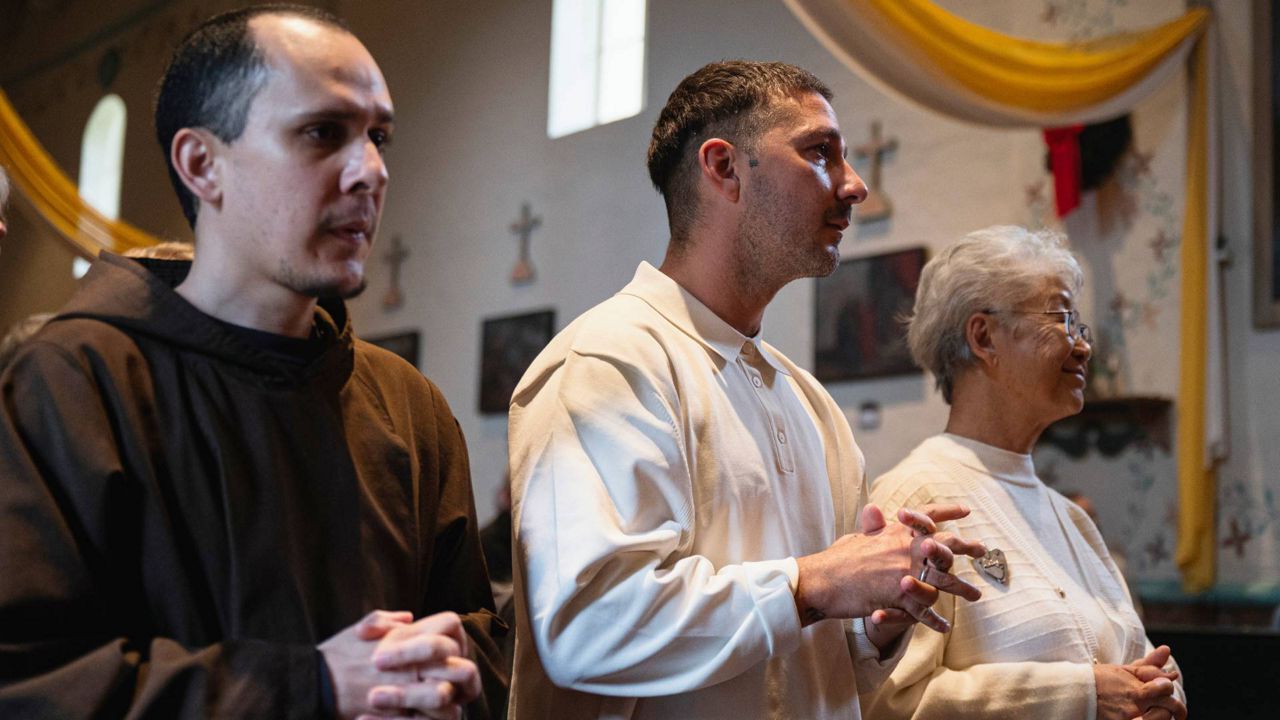
What is a Brother in Catholicism? A Brother in Catholicism is a man who has taken vows of poverty, chastity, and obedience within a religious community. Unlike priests, brothers do not perform sacraments but dedicate their lives to prayer, service, and community work. They often engage in teaching, healthcare, and various forms of social outreach. Brothers live in communities where they support each other spiritually and practically. Their commitment reflects a deep faith and desire to serve others. Understanding the role of a brother can provide insight into the diverse ways people live out their religious vocations.
Who Are Brothers in Catholicism?
Brothers in Catholicism play a unique role within the Church. They are not priests but dedicate their lives to religious service, community, and prayer. Here are some intriguing facts about these devoted men.
-
Brothers take vows of poverty, chastity, and obedience. These vows signify their commitment to live simply, remain celibate, and follow the directives of their religious superiors.
-
They live in religious communities. Brothers often reside in monasteries or other communal living arrangements, fostering a sense of unity and shared purpose.
-
Brothers are not ordained priests. Unlike priests, brothers do not perform sacraments such as the Eucharist or confession.
-
They engage in various ministries. Brothers may work in education, healthcare, social services, or other fields that align with their community's mission.
-
The term "brother" signifies fraternity. It emphasizes their role as spiritual siblings within the Church, fostering a sense of brotherhood among believers.
Historical Background of Brothers
The history of brothers in Catholicism is rich and varied, stretching back centuries. Their roles and responsibilities have evolved over time.
-
The concept dates back to early Christianity. Early Christian communities included men who dedicated their lives to service without becoming priests.
-
Monastic orders played a significant role. Orders like the Benedictines and Franciscans included brothers who contributed to the community's work and prayer life.
-
The Middle Ages saw a rise in lay brothers. These men focused on manual labor and practical tasks within monastic communities.
-
The Jesuits expanded the role of brothers. Founded in the 16th century, the Jesuits included brothers who engaged in education and missionary work.
-
Modern times have seen diversification. Today, brothers serve in a wide range of ministries, reflecting the changing needs of the Church and society.
Daily Life of a Brother
The daily life of a brother is structured yet varied, balancing prayer, work, and community living.
-
Prayer is central to their day. Brothers participate in communal prayers, such as the Liturgy of the Hours, and personal devotions.
-
Work is a key component. Whether teaching, nursing, or engaging in social work, brothers dedicate their skills to serving others.
-
Community life fosters support. Living in community provides brothers with mutual support, accountability, and shared spiritual growth.
-
Simplicity is a hallmark. Brothers live simply, often foregoing personal possessions and luxuries to focus on their spiritual mission.
-
Education and formation are ongoing. Brothers continually engage in spiritual and professional development to better serve their communities.
Notable Orders and Congregations
Several religious orders and congregations are known for their brothers and their contributions to the Church and society.
-
The Benedictines emphasize prayer and work. Founded by St. Benedict, this order balances communal prayer with manual labor and intellectual pursuits.
-
The Franciscans follow St. Francis of Assisi. Known for their commitment to poverty and service, Franciscan brothers work in various ministries worldwide.
-
The Jesuits focus on education and social justice. Jesuit brothers often work in schools, universities, and social justice initiatives.
-
The Christian Brothers are dedicated to education. Founded by St. John Baptist de La Salle, this congregation focuses on teaching and educational administration.
-
The Marianists blend community and mission. Marianist brothers engage in education, social work, and other ministries while living in close-knit communities.
Challenges and Rewards
Being a brother in Catholicism comes with its own set of challenges and rewards, reflecting the unique nature of this vocation.
-
Celibacy can be challenging. The vow of chastity requires brothers to forgo marriage and family life, which can be difficult for some.
-
Community living has its ups and downs. While supportive, living in close quarters with others can sometimes lead to conflicts and tensions.
-
Financial simplicity requires adjustment. The vow of poverty means living without personal wealth, which can be a significant lifestyle change.
-
Spiritual growth is a profound reward. Many brothers find deep spiritual fulfillment in their daily prayer and service.
-
Making a difference is deeply satisfying. Brothers often experience great joy in knowing their work positively impacts others' lives.
Modern-Day Brothers
In today's world, brothers continue to adapt and find new ways to serve the Church and society.
-
Technology is a new frontier. Some brothers use digital tools to evangelize, educate, and connect with people globally.
-
Social justice remains a focus. Many brothers are involved in advocacy and direct service to marginalized communities.
-
Interfaith dialogue is growing. Brothers increasingly engage in conversations and collaborations with people of other faith traditions.
-
Environmental stewardship is a priority. Inspired by Pope Francis' encyclical "Laudato Si'," many brothers work on environmental conservation and sustainability projects.
-
Vocations are evolving. While the number of brothers has declined in some regions, new vocations are emerging in others, reflecting the dynamic nature of this calling.
Final Thoughts on Catholic Brothers
Catholic brothers play a vital role in the Church. They dedicate their lives to service, prayer, and community. Unlike priests, brothers don't perform sacraments but focus on education, healthcare, and social work. Their commitment to vows of poverty, chastity, and obedience sets them apart. Brothers often live in communities, supporting each other in their spiritual journey. Their work impacts countless lives, offering education, care, and hope to many. Understanding their role helps appreciate their contributions. These men, driven by faith, make a difference in the world. Their dedication and service embody the Church's mission. Knowing these facts about Catholic brothers enriches our understanding of their unique vocation. Their lives, filled with purpose and devotion, inspire many. So, next time you meet a Catholic brother, you'll know a bit more about their incredible journey.
Was this page helpful?
Our commitment to delivering trustworthy and engaging content is at the heart of what we do. Each fact on our site is contributed by real users like you, bringing a wealth of diverse insights and information. To ensure the highest standards of accuracy and reliability, our dedicated editors meticulously review each submission. This process guarantees that the facts we share are not only fascinating but also credible. Trust in our commitment to quality and authenticity as you explore and learn with us.


